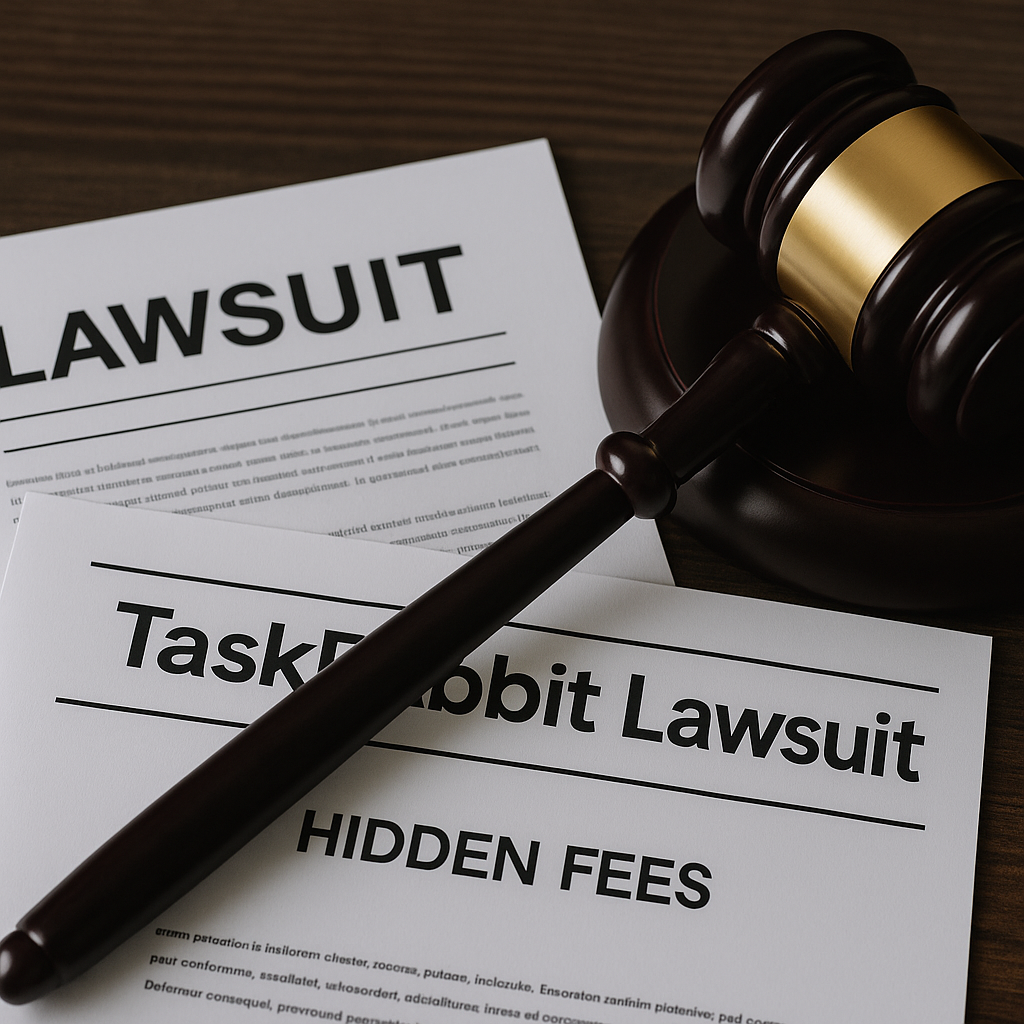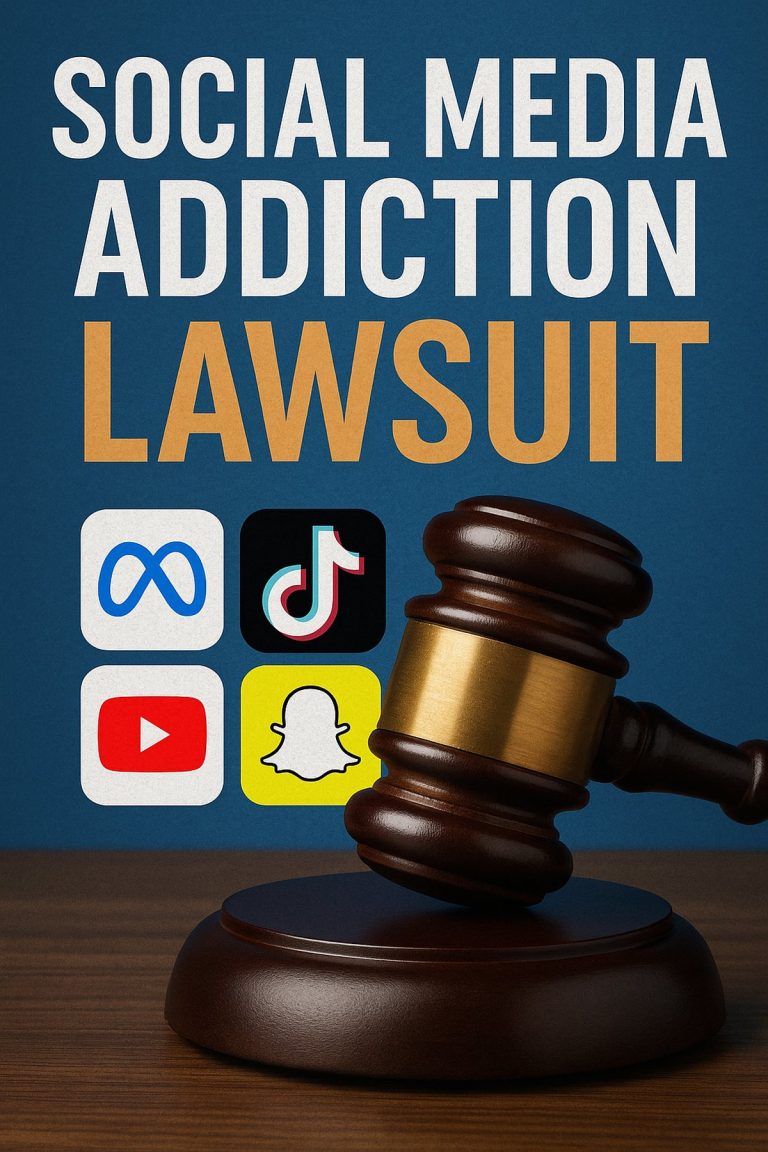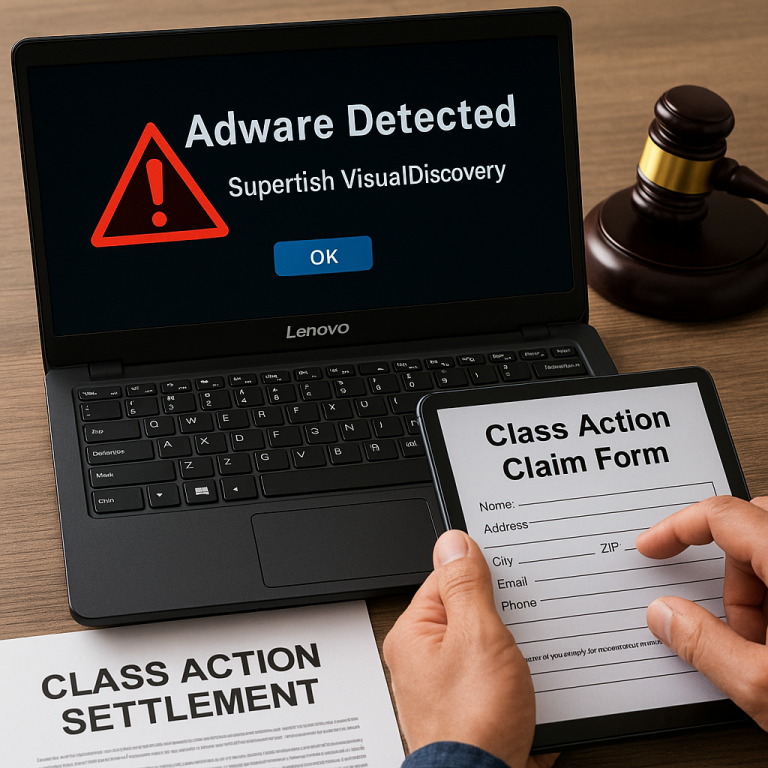The TaskRabbit lawsuit filed in July 2025 has sparked major attention. This legal case claims the platform deceived users with hidden fees. TaskRabbit shows low hourly rates first. It then adds a “Trust & Support Fee” at the very end. This fee often shocks customers during final checkout. They feel forced to pay more than expected.
TaskRabbit Lawsuit argues this tactic misleads users. It calls the fee a “junk fee” that brings no real benefit. Many customers did not know about it until they were ready to pay. That’s why they say TaskRabbit broke consumer protection laws. Thousands of people may be affected.
This article explains every detail. You’ll learn what the lawsuit means, who it impacts, and how it could change TaskRabbit’s future. If you’ve used the app and saw a surprise fee, this could apply to you. Read on. You may be part of this case without knowing it.
How Did the Plaintiff Describe the Issue?
A resident from Concord, California filed the lawsuit. He claimed that TaskRabbit advertised a $39 hourly rate for cleaning. He did not see any fee notice early. After booking he was charged an extra $28.88 Trust & Support Fee. The plaintiff also booked another job quoted at $71/hour. That job attracted a $10.76 fee added at checkout.
The complaint says he only learned of the fee at final payment. He said he would not have used TaskRabbit if he knew the total cost upfront. The suit claims his experience reflects a pattern across thousands of customers.
What Are the Allegations?
TaskRabbit faces several legal claims in this case. Let’s break down each of them step by step.
1. Drip Pricing
TaskRabbit reportedly shows base rates first. Mandatory fees show much later. This strategy lures users with low rates. It then surprises them with added fees. Deceptive advertising rules prohibit such tactics.
2. Junk Fee
The Trust & Support Fees vary across transactions. They bear no relation to job complexity or service length. The suit claims they offer no extra value. They appear arbitrary and profit driven.
3. Deceptive Advertising
TaskRabbit highlights low hourly rates in bold text. It hides the actual total cost until late in the process. The design encourages users to invest time. Those users feel trapped once they reach checkout. That violates fair advertising laws.
4. Violation of California Law
Court documents allege multiple legal breaches:
- California Consumer Legal Remedies Act
- California False Advertising Law
- California Unfair Competition Law
Plaintiff seeks refunds, restitution, injunctive relief, and court orders requiring TaskRabbit to reform its pricing disclosure process.
Who Can Join the Class?
The proposed class includes U.S. consumers. Those who used TaskRabbit within the limitations window and paid hidden fees count. Coverage extends across state and federal court jurisdictions. Member numbers may reach many thousands.
How Does This Compare to Prior Cases?
TaskRabbit faced litigation over worker classification previously. In Finholt v. TaskRabbit (2020), about 10,000 Taskers alleged misclassification as independent contractors. That suit ended in a $1.75 million settlement in August 2020.
That legal matter focused on labor rights. This new case targets consumer pricing. It involves deceptive marketing and undisclosed fees.
Why Does It Matter Now?
Regulators and consumer groups have targeted hidden “junk fees”. The FTC has proposed anti-drip pricing rules. California responded with SB 478, aimed at forcing platforms to disclose total prices upfront. That elevates interest in this suit and similar actions. This case intersects both legal enforcement and evolving pricing norms. It may influence platform behavior beyond TaskRabbit.
What Could Happen Next?
The case may go in different directions. Each step matters. Here’s what could happen from here.
Class Certification
Plaintiff’s lawyers must request class certification. They must show common legal and factual issues. If courts grant certification, TaskRabbit must notify potential class members.
Discovery Phase
Both sides will exchange documents. That includes internal data on price display timing, fee amounts, and user complaints. Lawyers may interview TaskRabbit staff and consultants.
Settlement or Trial
Parties may negotiate a settlement. That could include fee refunds or reforms in fee disclosure. If no settlement emerges, a trial will determine liability and damages.
Consumer Actions
Potential class members can:
- Save screenshots showing advertised rates
- Save final invoices showing fees
- Track updates via legal news or class-action registries
Real Consumer Reactions
Social media and review sites show growing frustration. On Reddit users described high fees as a scam:
“For a $279 task, I was charged $99.77 Trust & Support Fee !!!!!! That is ridiculous.”
“That extra money should go to the tasker. What a rip off”.
Many users felt the fee far exceeded service value. They also complained generically about hidden charges and poor transparency. Other posts on BBB and forums echo similar sentiment. People describe feeling misled and overcharged.
Fee Examples & Cost Comparisons
| Scenario | Base Rate | Trust & Support Fee | Total Paid |
|---|---|---|---|
| May 2024 cleaning | $39/hour | $28.88 | $67.88 |
| Oct 2024 cleaning | $71/hour | $10.76 | $81.76 |
Fees appeared only at checkout. Users saw only bold base rate during browsing. That prevented fair price comparison and surprised them at the final step.
In‑Depth: Legal Arguments Explained
The case rests on legal logic. Here’s how the plaintiff builds that argument.
Drip Pricing Harm
Consumers focus on the early low rate. They invest effort in booking the tasker. When final cost appears, they feel locked in. Courts recognize that pattern as deceptive under FTC guidelines and California advertising law.
No Service Value Delivered
TaskRabbit describes the fee as supporting operations, training, tools, and customer support. Yet the amount users pay varies unpredictably. The suit says those fees rarely match actual costs. They do not correlate with job type, duration, or complexity.
False Advertising Breach
California law forbids advertising prices that exclude mandatory charges. TaskRabbit lists low base rates without disclosing that customers will pay significantly more once the fee applies. That hides the true cost until too late.
Key Case Details
| Item | Information |
|---|---|
| Filing Date | July 22, 2025 |
| Court | U.S. District Court, California |
| Fee in Question | Trust & Support Fee |
| Allegation Type | Drip pricing, junk fee, deceptive advertising |
| Legal Claims | California consumer laws & federal advertising rules |
| Class Coverage | U.S. consumers who paid undisclosed fees |
| Past TaskRabbit Cases | Worker classification suit settled for $1.75M in 2020 |
| Possible Outcome | Refunds, injunctive relief, fee disclosure reforms |
Consumer Tips
- Compare total cost before booking.
- Take screenshots early and at checkout.
- Save the final invoice showing fees.
- Monitor ClassAction.org or similar for updates.
- Consider signing up for legal newsletters or class notices.
FAQ
What is the disputed TaskRabbit fee?
It is the Trust & Support Fee. TaskRabbit adds it at final checkout in addition to hourly rates.
When did the TaskRabbit Lawsuit start?
Filed on July 22, 2025, in California federal court. Documents publicly surfaced around July 29, 2025.
Who qualifies as a class member?
Individuals in the U.S. who booked TaskRabbit services and were charged undisclosed fees during the limitation period.
What is drip pricing?
A method showing low initial price. Mandatory fees appear later in the process. That traps users with inflated final costs.
Have regulators addressed this issue?
Yes. The FTC targets junk fees. California enacted SB 478 to regulate fee disclosures. This case fits within that reform momentum.
Does the fee go to taskers?
TaskRabbit claims the fee supports customer support, tools, and safety programs. It does not affect what taskers earn.
Final Thoughts
The TaskRabbit lawsuit matters because it targets how platforms treat consumers. It questions whether companies can hide fees until the last moment. Many people use TaskRabbit for simple jobs. They expect clear pricing. But hidden charges make the service cost much more.
The TaskRabbit Lawsuit wants to stop that. It pushes for honest pricing from the start. If the court agrees, TaskRabbit may have to change how it shows costs. That could help thousands of users avoid surprise fees in the future. It may also lead to refunds.
If you booked a task and saw a fee at checkout, save your receipt. You might get included in this case. These legal actions help protect people from unfair charges. Keep watching for updates. You could receive compensation or a notice to join. In the end, this case isn’t just about one fee. It’s about fairness, honesty, and transparency in every online transaction.
Ayesha Awais is a content writer for JudicialNexus.com, covering accident reports, injury-related news, lawsuits, and public safety updates. All content is informational in nature and based on publicly available sources.




